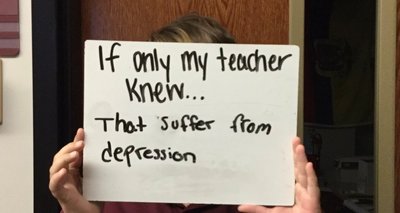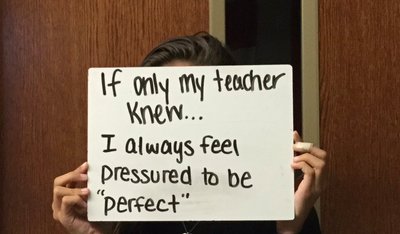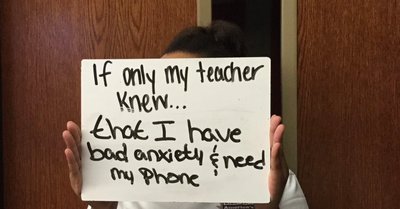Blog Post By REbecca Gibboney, PTAC MemberNine years ago, I had my first sleepless night as a teacher. I spent the night reviewing lesson plans and hoping that I would be able to make meaningful connections with my students. When the alarm rang, despite the tired bags under my eyes, I was excited and enthusiastic as I greeted each student that walked into my classroom.
That was my first day of being a teacher in my own classroom. My lessons were scripted and the bulletin boards were neatly prepared. I even had a mint bowl next to the door for students that arrived on time. I knew that the lure of a mint would be sure to motivate students to arrive before the bell. According to everything I had learned in my pre-service classes, things were under control. I greeted my first group of students at the door with my “pocketful of sunshine” enthusiasm. I was sure they would greet me back. I was sure they were going to dive right into those mints. I was sure they would get busy right away with the bell ringer. And they did. But, weeks passed by and I kept pushing along with my content, because that’s what I was trained to do. I was still greeting my students with enthusiasm every day, and I still had that bowl of fresh mints waiting, but something changed. Students’ smiles were fading, their eyes were restless. And my mint bowl was staying full. When I caught my first student asleep during my lesson, I was shocked and asked that student to stay after class. There had to be a punishment for his actions, right? “Why were you sleeping during my lesson? It took me hours to prep that lesson! Do you know how disrespectful that is? I don’t think I’m that boring, am I?” I prodded. In my young, new-teacher mind, his sleeping was somehow about me. I was the wronged party. He was being disrespectful to me. “I’m sorry Señorita. I was up all night having panic attacks and when I finally got control of them it was early in the morning. I really only had about two hours of sleep,” he told me. This was a plot twist I did not expect. I changed in that moment. That single interaction forced me to reconsider what I thought I knew about teaching, learning, and school. I learned that teaching cannot be scripted by a curriculum or a textbook, but teaching is all about making connections and forming relationships. Relationships. Nine years later I see things very differently than I did as a novice. My enthusiasm remains, but I know that learning is messy. I used to plan for perfection, but now I plan for complexity. I know that the art of teaching -- the art of building the relationships that are vital for both learning and personal growth -- is both complex and messy. I begin each of my classes every year by uncovering my students’ unique stories. I learn what is hidden behind those tired eyes and worn-out smiles. I simply listen. We, as educators, cannot truly teach without first understanding our characters that walk into our classrooms each day. Teachers are the directors of our classes. Our students are the actors. Each year, we start without a script. Yet, students bring their own. Every single student in our classroom has a story with plot twists, some more than others; and, these plot twists have shaped them into who they are today. It is our jobs to understand those plot twists and shape their character. As a teacher, it is important to take the time to listen to students’ stories. It is important to take the time to understand who they are and who they want to become. We must coach students through their plot twists and teach them that those plot twists - good or bad - do not define who they are. Teaching isn’t just about the curriculum or the letter grades behind a name. Teaching is all about uncovering a student’s story and empowering them to write their own.
4 Comments
Cindy O.
10/3/2018 05:48:39 am
Beautifully written Rebecca! There are so many outside factors that students contend with and we don’t know. Your advice is simple—-> Listen
Reply
Chad G.
10/3/2018 07:21:27 am
Rebecca, thanks for the reminder that by knowing our students' "stories", we can reach them so much better.
Reply
Ryan
10/3/2018 02:44:22 pm
Amen!
Reply
1/20/2020 03:12:41 am
Well, we all go through something difficult in our lives. But as a teacher who faces her students on an everyday basis, you must exert a genuine care for them. There are several ways on how you can do it; one of these ways is through checking on them. You need to look at them more than what you eyes can see. You need to know if there is something that bothers them and eventually offer the help that you can have. Teaching is not always about the curriculum or the grades you will give, it is mostly about giving love and care for your students.
Reply
Your comment will be posted after it is approved.
Leave a Reply. |
AuthorPennsylvania Teachers Advisory Committee Archives
March 2022
Categories |




 RSS Feed
RSS Feed